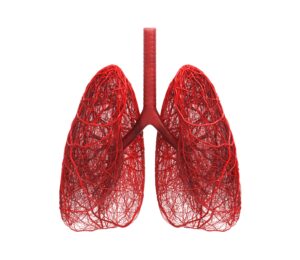In this guide, we discuss when you could be eligible to make a claim for pulmonary embolism negligence. Additionally, we look at what evidence could be used to strengthen your case and how compensation is calculated for successful medical negligence claims.
Later in our guide, we provide guidance on how a pulmonary embolism could occur and the potential impacts it could have if it’s not diagnosed or treated correctly.
Finally, we discuss how a medical negligence solicitor could assist you with seeking compensation under No Win No Fee terms.
If you have any other questions whilst reading, please get in touch with an advisor from our team. They can provide free advice and offer a free initial consultation to determine your eligibility to pursue compensation.
To reach out, you can:
- Call 0333 000 0729.
- Complete the “Contact Us” form here.
- Use the live chat function below.

Select A Section
- Can I Claim For Pulmonary Embolism Negligence?
- Examples Of Pulmonary Embolism Negligence
- How Can I Prove A Medical Professional Breached Their Duty Of Care?
- Calculating Payouts For Pulmonary Embolism Negligence
- Make A Medical Negligence Compensation Claim With A No Win No Fee Solicitor
- Discover More About Medical Negligence Claims
Can I Claim For Pulmonary Embolism Negligence?
Medical professionals and healthcare professionals owe their patients a duty of care to provide care of the correct standard. This duty applies to medical professionals working in both the public and private healthcare sector. If the medical professional in charge of your care failed to adhere to the correct standards, this could constitute medical negligence.
You could be eligible to claim for pulmonary embolism negligence if you meet the medical negligence claims criteria. This means showing:
- The medical professional owed you a duty of care.
- They failed to meet the correct standard of care.
- You suffered avoidable harm as a consequence.
How Long Do I Have To Make A Pulmonary Embolism Negligence Claim?
Medical negligence claims must also be started within the time limit set out in the Limitation Act 1980. Generally, this is 3 years starting from the date medical negligence occurred or the date you connected avoidable harm you suffered with a medical professional breaching their duty of care. The latter is known as the date of knowledge.
However, some exceptions can apply in certain circumstances, such as where the person is under the age of 18 or the claimant lacks the mental capacity to start legal proceedings themselves.
Please speak to us on the number above for more information about the time limits and exceptions that can be made. An advisor can also assess your case for free and help you understand whether you’re eligible to claim for pulmonary embolism negligence.
Examples Of Pulmonary Embolism Negligence
A pulmonary embolism is when a blood clot disrupts blood flow and blocks blood vessels in the lungs. It’s a serious condition that, if not treated promptly, has the potential to be life-threatening. Symptoms include difficulty breathing, coughing up blood and chest pain.
An embolism can commonly be caused by Deep Vein Thrombosis (DVT) which is when part of a blood clot breaks off from your leg and travels up to your lungs resulting in a blockage.
Below, we have provided examples of medical negligence that could result in a pulmonary embolism or lead to complications.
- While you are in hospital being treated for another condition, you are considered high risk of developing a blood clot. However, the team in charge of your care fails to take steps to consider the risk factors and prevent a blood clot from occurring. As a result, you develop DVT leading to a pulmonary embolism and suffer heart and lung damage.
- You got to A&E with clear symptoms of DVT but you are diagnosed with another condition. As a result, the misdiagnosed blood clot leads to you suffering a stroke and subsequent brain damage.
To discuss your specific case, please reach out to an advisor. Not all cases involving blood clots and a pulmonary embolism will mean you have a valid compensation claim. So getting in touch with our medical negligence team can help you identify whether you are eligible to proceed with a pulmonary embolism negligence claim.
How Can I Prove A Medical Professional Breached Their Duty Of Care?
When starting a claim for pulmonary embolism negligence, its vital that you can gather together as much supporting evidence that there was a negligent failure by a medical professional to uphold their duty of care. Evidence should also prove the avoidable harm you suffered because of a failure to provide the correct care.
Some examples of evidence that could be used to support medical negligence claims include:
- Medical records, such as copies of X-rays, ultrasound test results, blood test results and copies of prescriptions.
- A diary containing information about medical treatment you received as well as your physical and mental symptoms.
- Pictures of any visible harm caused, such as scarring.
- The contact details of anyone who attended appointments with you. They could be asked to provide witness statements later on.
If you are eligible, you could instruct a medical negligence solicitor from our panel to assist you through the claims process. They can help you with collecting evidence and building your case. Furthermore, they can ensure your case is brought forward within the relevant time frame.
Speak to our team and they can assess the eligibility of your case. If your pulmonary embolism negligence claim is valid, they can connect you to an expert solicitor from our panel. Call the number above to get in touch.

Calculating Payouts For Pulmonary Embolism Negligence
Successful pulmonary embolism negligence compensation settlements can be made up of two heads of loss. General damages, the first head of loss, compensates for the pain and suffering of medical negligence.
If you choose to work with a solicitor, they can arrange for you to attend an independent medical assessment to produce a medical report. This report can be used to help value general damages.
Additionally, reference can be made to the Judicial College Guidelines (JCG). This publication provides guideline award brackets for different types of harm.
Compensation Table
The table below contains figures from the JCG, except for the first entry. Please only use these as a guide because payouts for pulmonary embolism compensation claims can vary depending on the specific case.
| Type of Harm | Severity | Notes | Compensation Guidelines |
|---|---|---|---|
| Multiple Severe Injuries and/or Illnesses with Financial Losses | Severe | Compensation for severe the pain and suffering of multiple severe injuries and/or illnesses as well as the financial losses incurred as a result, such as lost income, care costs, and medical expenses. | Up to £1 million plus |
| Brain Damage | Very Severe | Cases where little language function remains and there is no evidence of a meaningful response to external environment. Full time nursing care required. | £282,010 to £403,990 |
| Moderately Severe | Serious disabilities, either physical or cognitive, causing a substantial dependence on others. Constant professional and other care is needed. | £219,070 to £282,010 | |
| Moderate (i) | Moderate to severe deficit of intellect with a personality change, effect on the senses and no employment prospects. | £150,110 to £219,070 | |
| Chest | Total Removal of One Lung and/or Serious Heart Damage | Serious and prolonged pain and suffering as well as permanent and significant scarring. | £100,670 to £150,110 |
| Chest, Lung, and/or Heart Damage | Permanent damage as well as impaired function, physical disability, and a reduced life expectancy. | £65,740 to £100,670 | |
| Damage to Chest and Lung(s) | Continuing disability is caused. | £31,310 to £54,830 | |
| Scarring | Multiple Laceration Scars or One Disfiguring Scar | These could be found on the back or chest. | £7,830 to £22,730 |
Special Damages
The second head of loss that can be awarded in successful pulmonary embolism negligence claims is special damages. This awards compensation to reimburse the financial losses caused by the medical negligence. For example:
- A loss in earnings.
- Medical expenses.
- Costs to adapt your home or vehicle.
- Care expenses.
- Travel expenses.
To claim special damages you will need documented proof of these losses and expenses. Payslips, receipts, and travel tickets are all valid forms of evidence.
Our experienced team of advisors can provide a more detailed estimate of how much your compensation claim might be worth. Get in touch using the number above.
Make A Medical Negligence Compensation Claim With A No Win No Fee Solicitor
If you would like a solicitor to represent your pulmonary embolism negligence claim, our team could help. They can assess your case for free and if they find you have valid grounds to proceed, they could connect you with one of our panel’s expert medical negligence solicitors.
The solicitors on our panel can offer their helpful services via the terms of a Conditional Fee Agreement (CFA) which is a type of No Win No Fee contract. Under the terms of a CFA, you typically won’t pay for the work they complete on your case at the following times:
- Upfront
- While the claim is ongoing
- Following an unsuccessful outcome
Upon the completion of a successful claim, you will pay a percentage of your compensation to your solicitor. This percentage has a legal cap to ensure you receive the majority of your awarded payout.
Talk To Our Expert Team Today
To find out whether you could start a pulmonary embolism negligence claim with an expert solicitor from our panel, get in touch with an advisor today. Alternatively, an advisor can answer any questions you have about your potential claim with no obligation to proceed with our services.
You can get in touch using the contact information below:
- Phone on 0333 000 0729.
- Use the online “Contact Us” form to learn more.
- Try our live chat function below.

Discover More About Medical Negligence Claims
For more of our helpful guides:
- Learn about claiming for a cancer misdiagnosis and how payouts are calculated.
- Find out if you could receive stroke misdiagnosis compensation after a medical professional breached their duty of care.
- Discover if you could claim compensation after being prescribed the wrong dosage of medication by a doctor.
Also, here are some helpful external links:
- Information on how to raise a concern about a doctor with the General Medical Council (GMC). The GMC is the independent regulator of doctors in the UK.
- Helpful statistics from NHS Resolution.
- Guidance on the NHS Constitution for England from GOV.UK.
- An NHS guide looking at anticoagulant medication and blood thinning medication.
Thank you for reading our guide on pulmonary embolism negligence. For a free assessment of your eligibility, or any further information on the medical negligence claims process, speak to our advisors today. The contact information is above.


